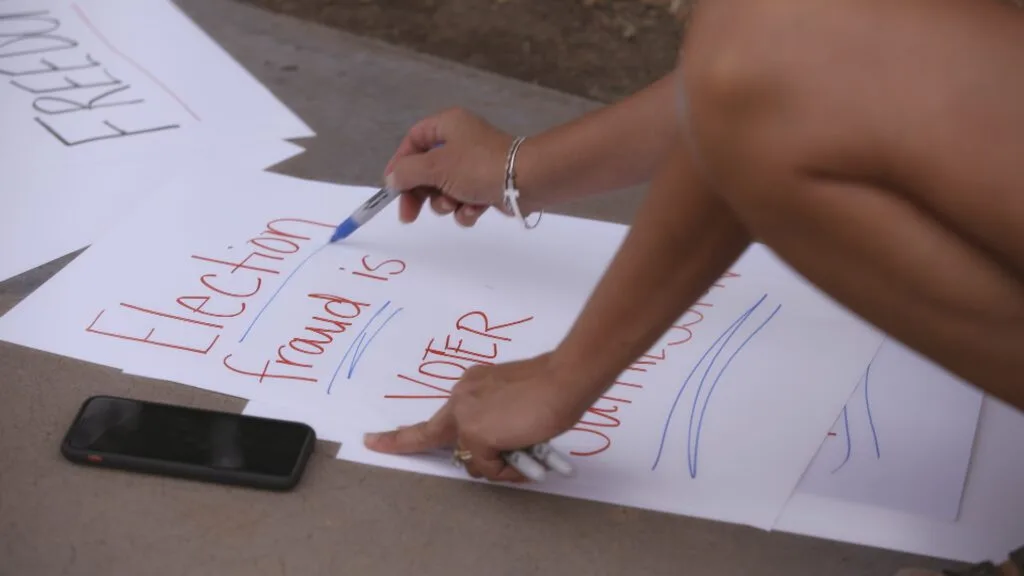The Making of an Election Myth

April 15, 2022
More than a year after President Joe Biden’s inauguration, around two-thirds of Republican voters believe his election was illegitimate. How did a stolen election myth make its way to the center of American politics? Director and producer Samuel Black and correspondent A.C. Thompson, part of the team behind the 2022 FRONTLINE and ProPublica documentary Plot to Overturn the Election sit down with FRONTLINE’s executive producer, Raney Aronson-Rath, to discuss how a handful of people have had an outsized impact on the current U.S. crisis of democratic legitimacy.
The legacy of misinformation extends beyond the 2020 U.S. presidential election and the Jan. 6 Capitol riot, Black and Thompson found. “How is the ongoing battle over the last election threatening the next one?” Thompson asks in the documentary.
Plot to Overturn the Election is now streaming on FRONTLINE’s website, the PBS Video app and FRONTLINE’s YouTube channel. Want to be notified every time a new podcast episode drops? Sign up for The FRONTLINE Dispatch newsletter.
Latest Documentaries
Explore
Policies
Teacher Center
Funding for FRONTLINE is provided through the support of PBS viewers and by the Corporation for Public Broadcasting, with major support from Ford Foundation. Additional funding is provided the Abrams Foundation, Park Foundation, John D. and Catherine T. MacArthur Foundation, Heising-Simons Foundation, and the FRONTLINE Trust, with major support from Jon and Jo Ann Hagler on behalf of the Jon L. Hagler Foundation, and additional support from Koo and Patricia Yuen. FRONTLINE is a registered trademark of WGBH Educational Foundation. Web Site Copyright ©1995-2025 WGBH Educational Foundation. PBS is a 501(c)(3) not-for-profit organization.



















